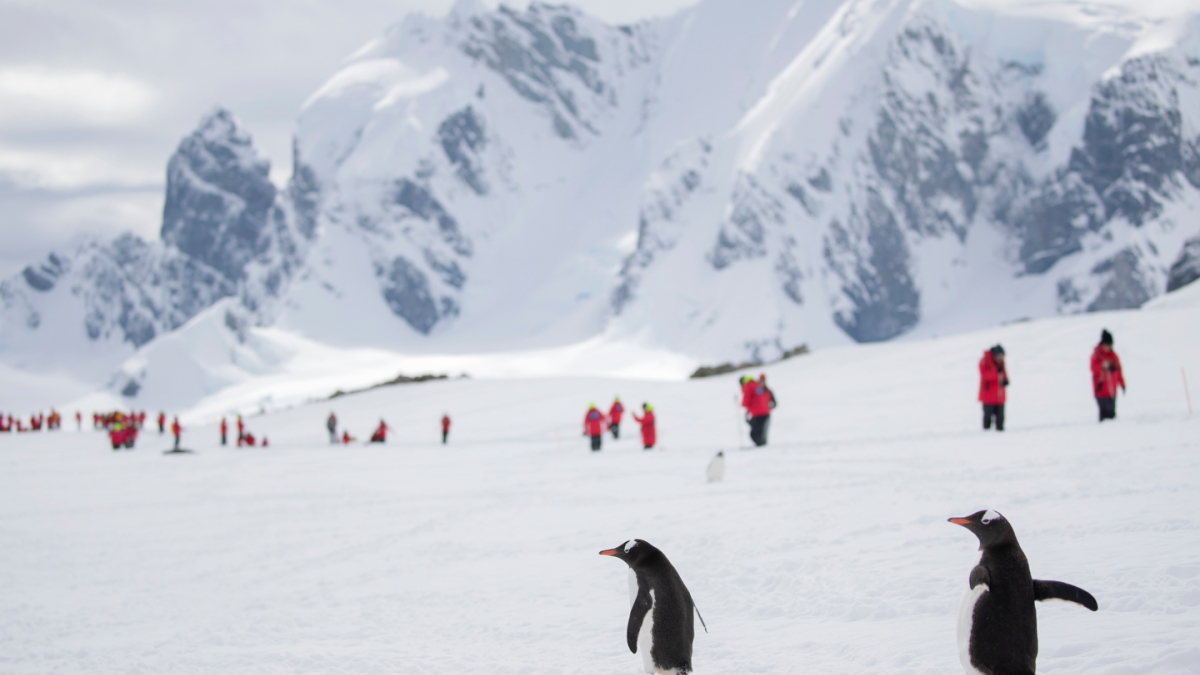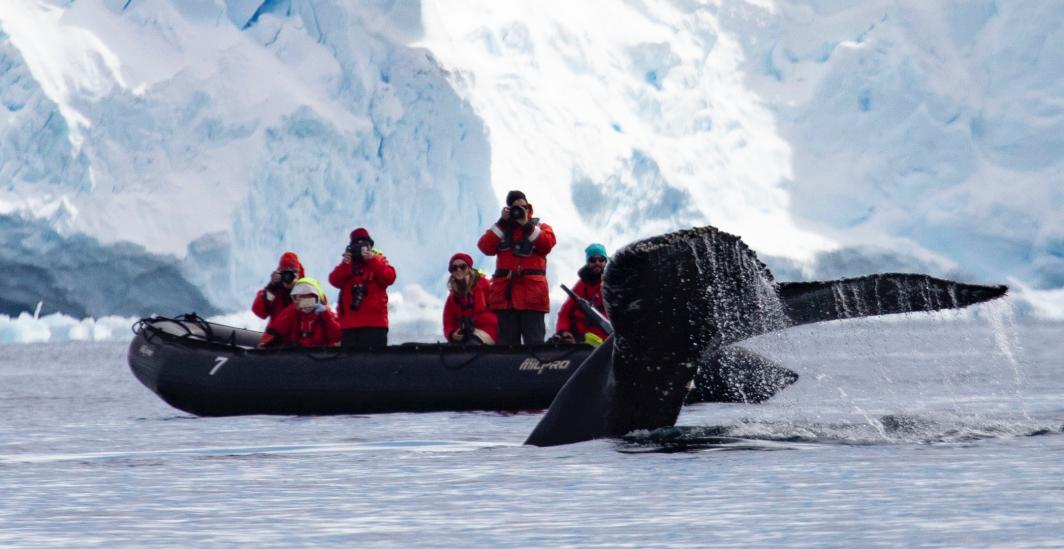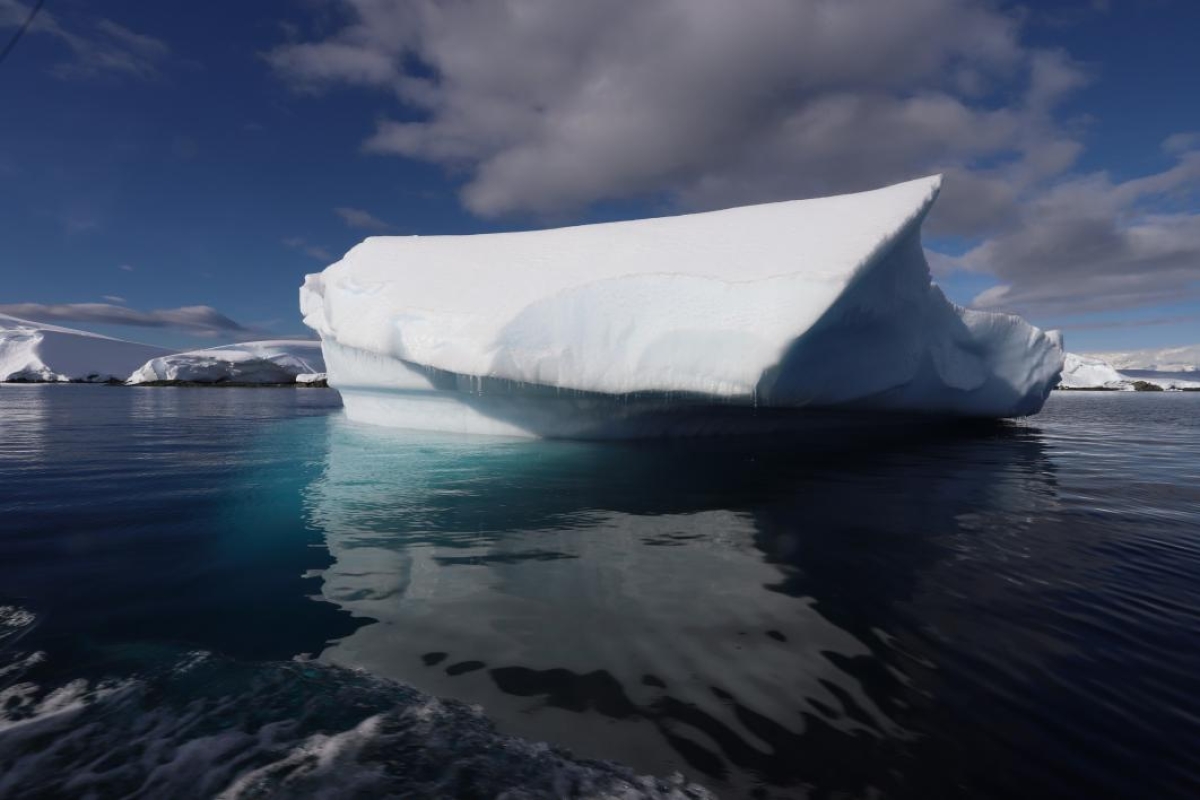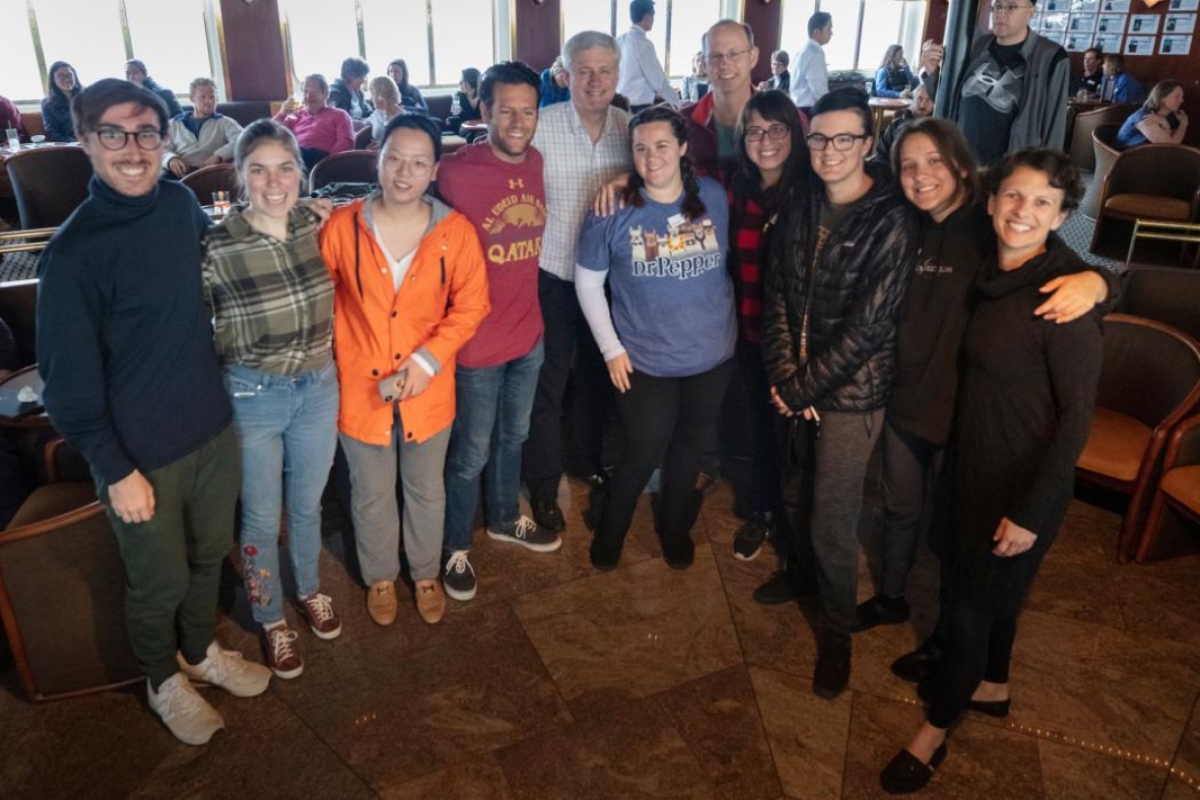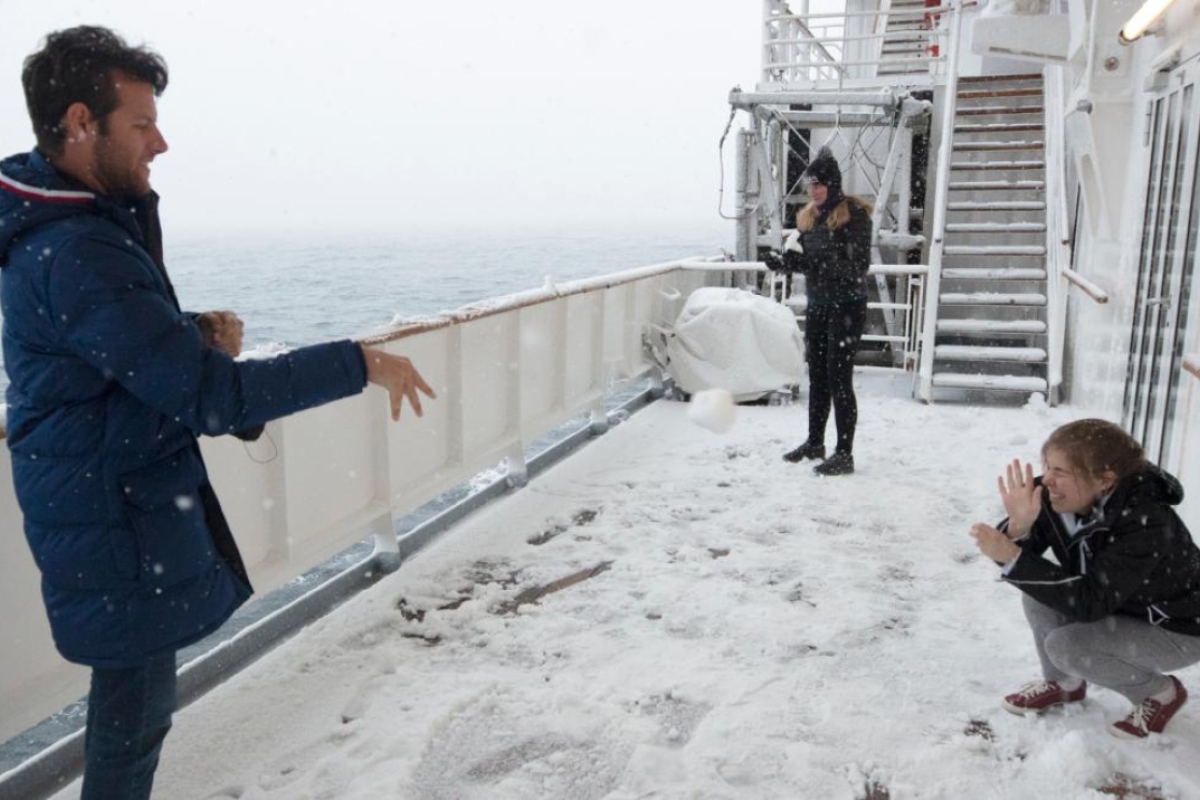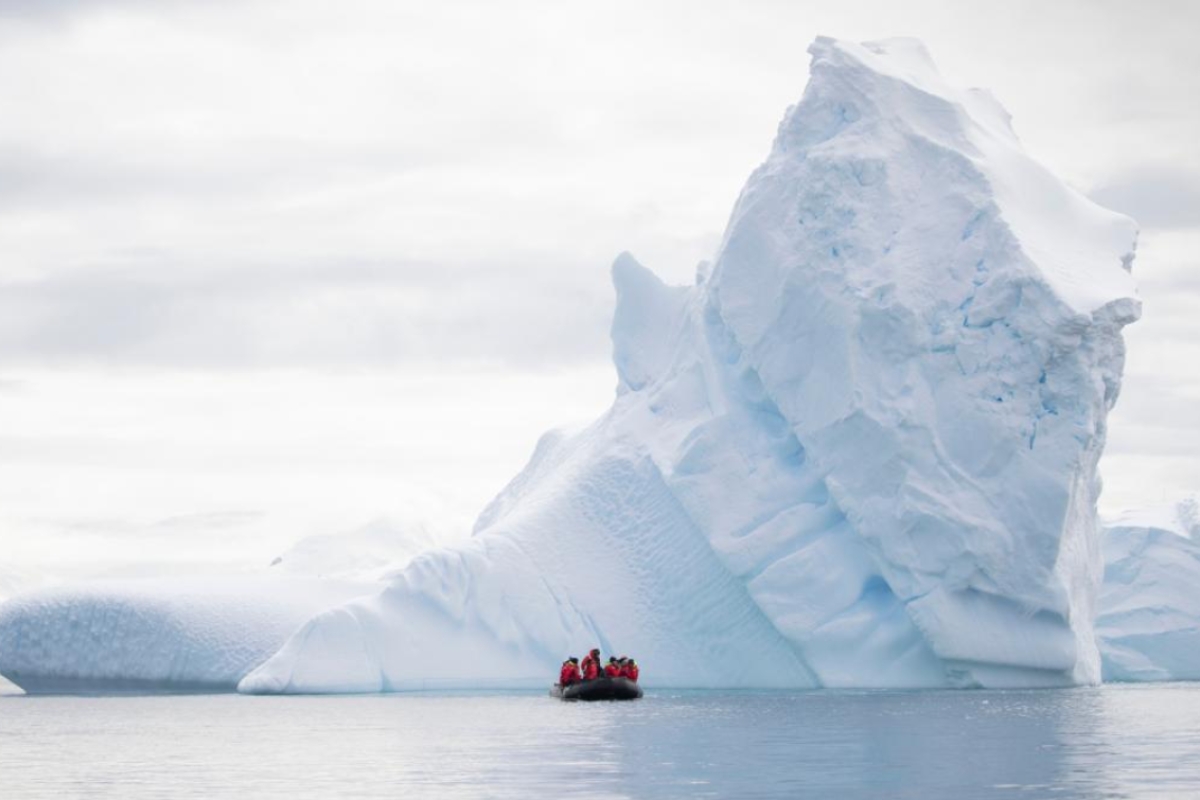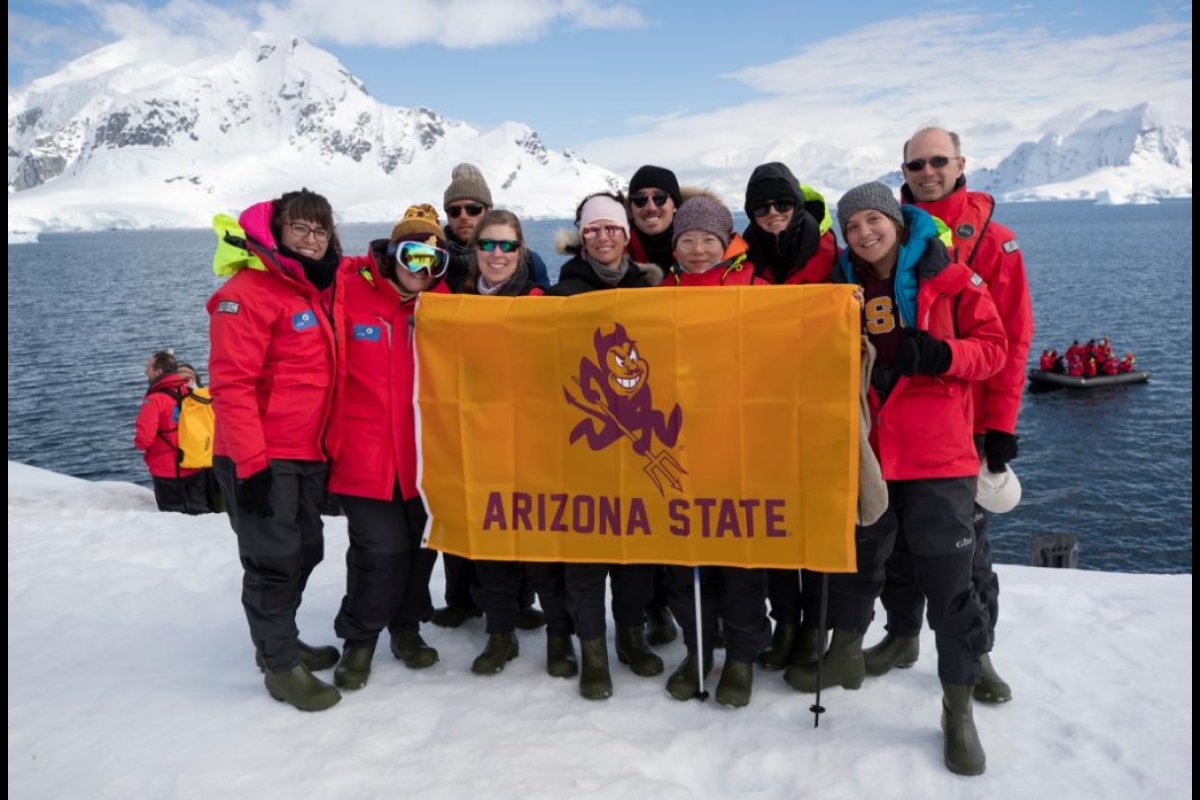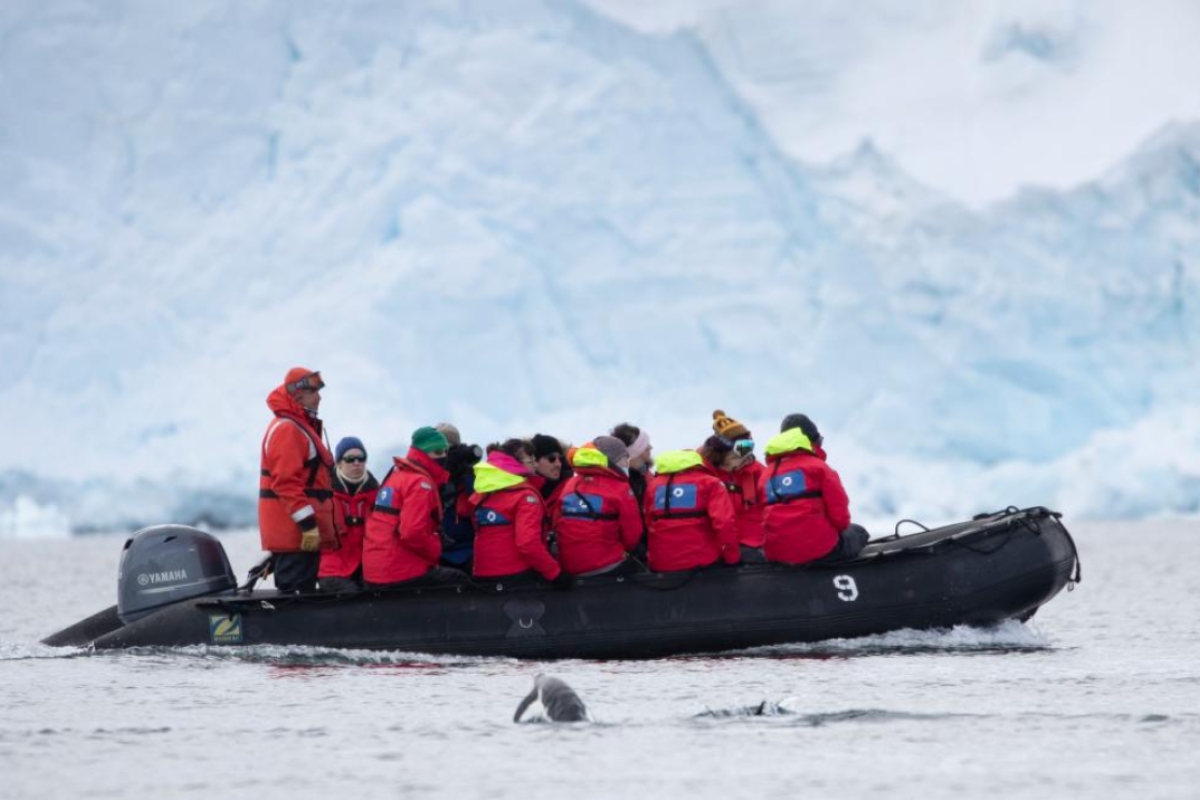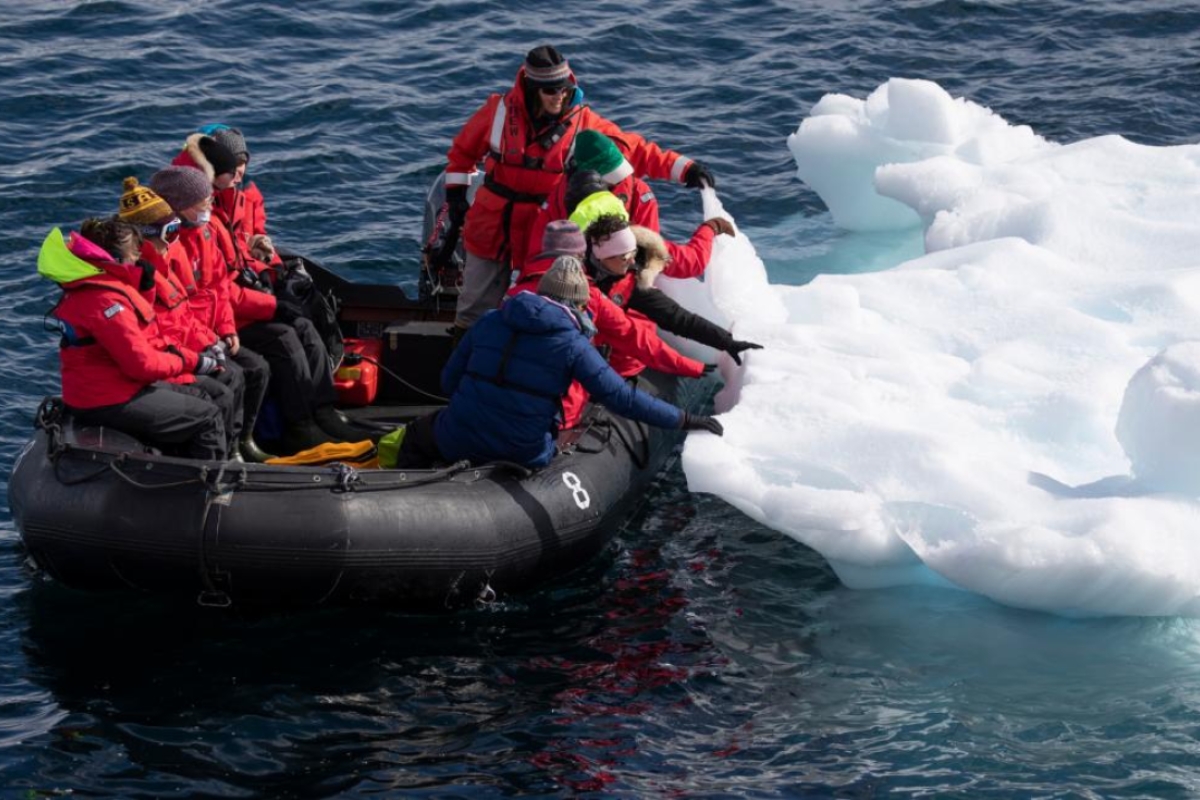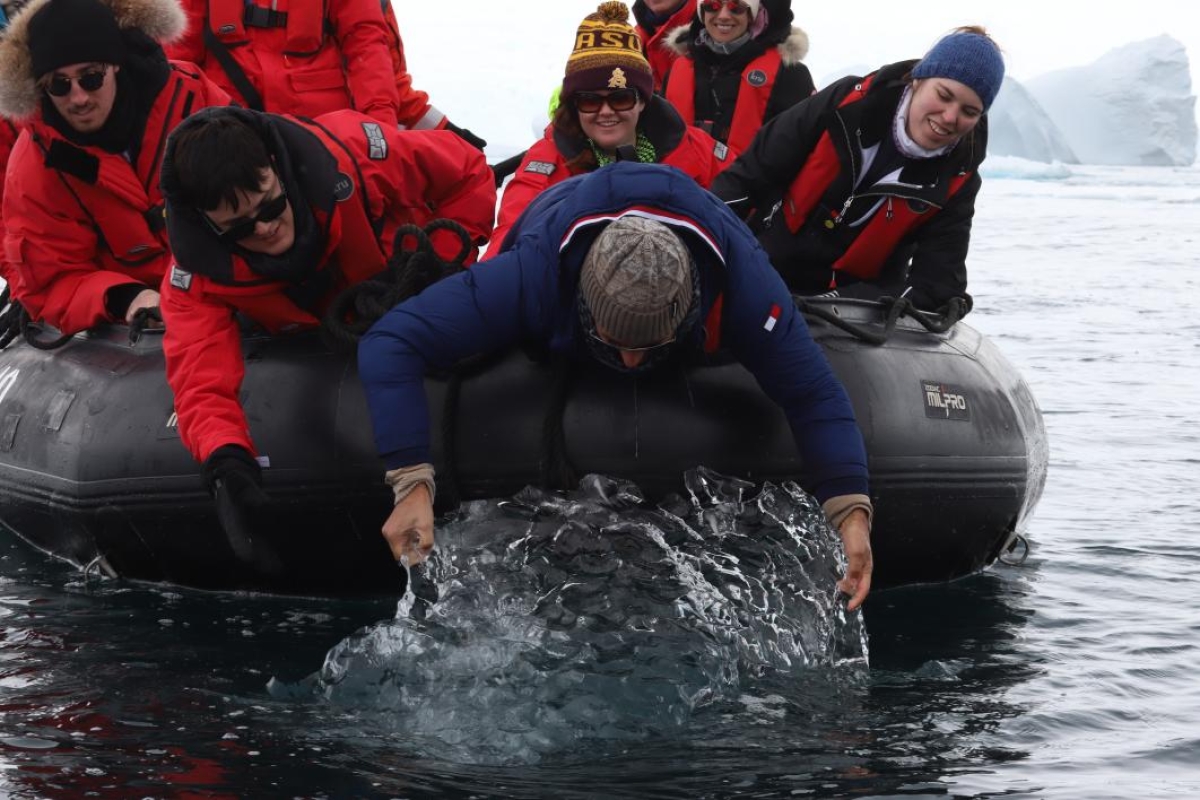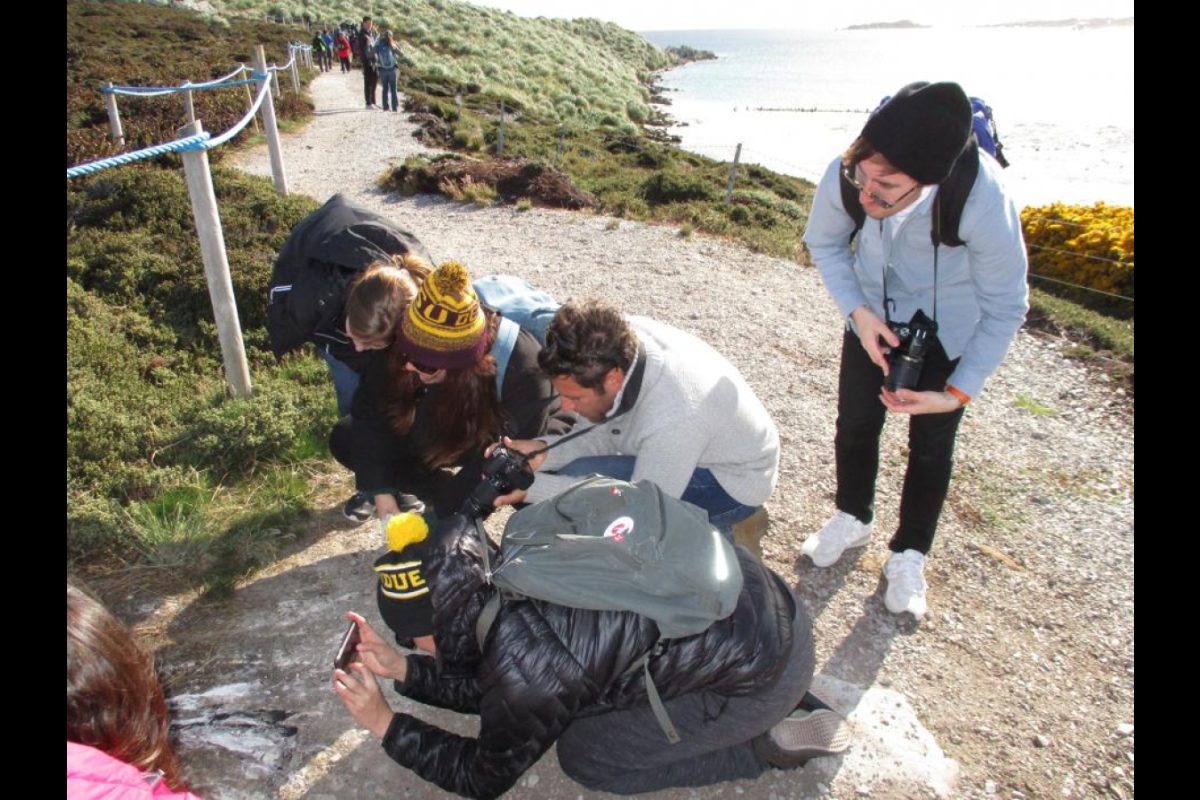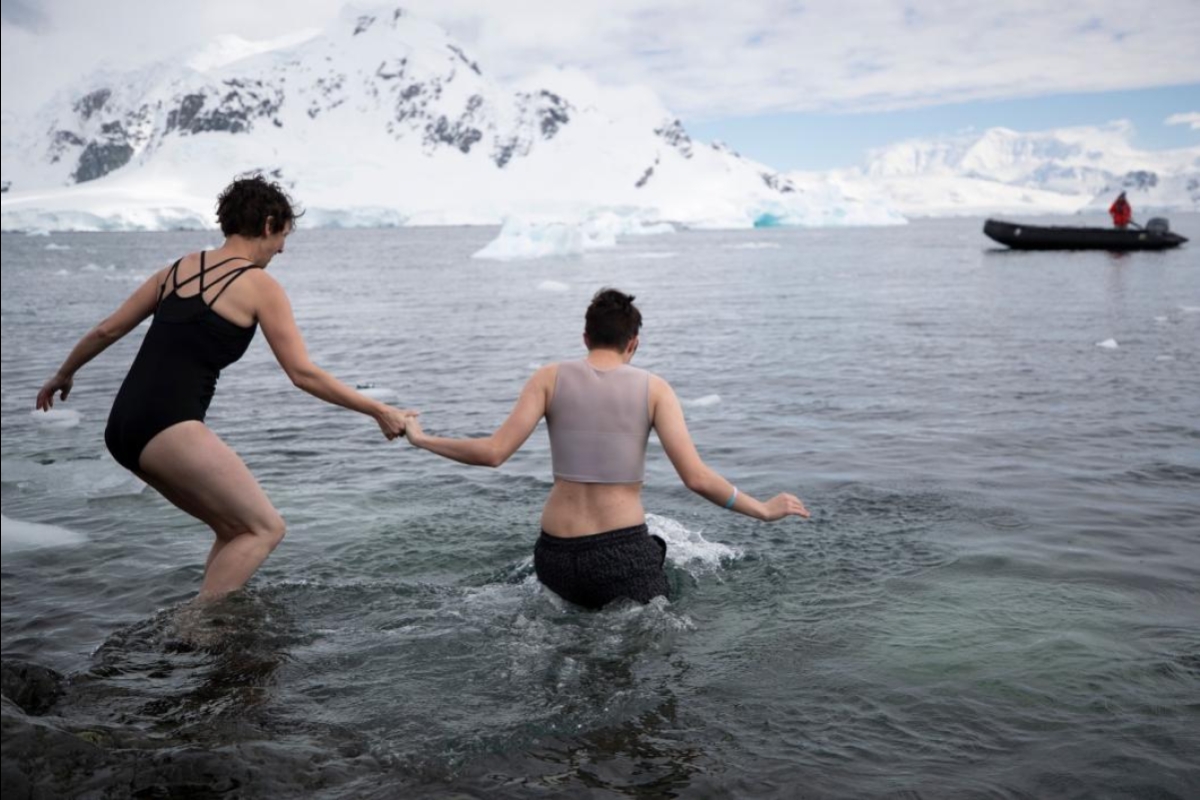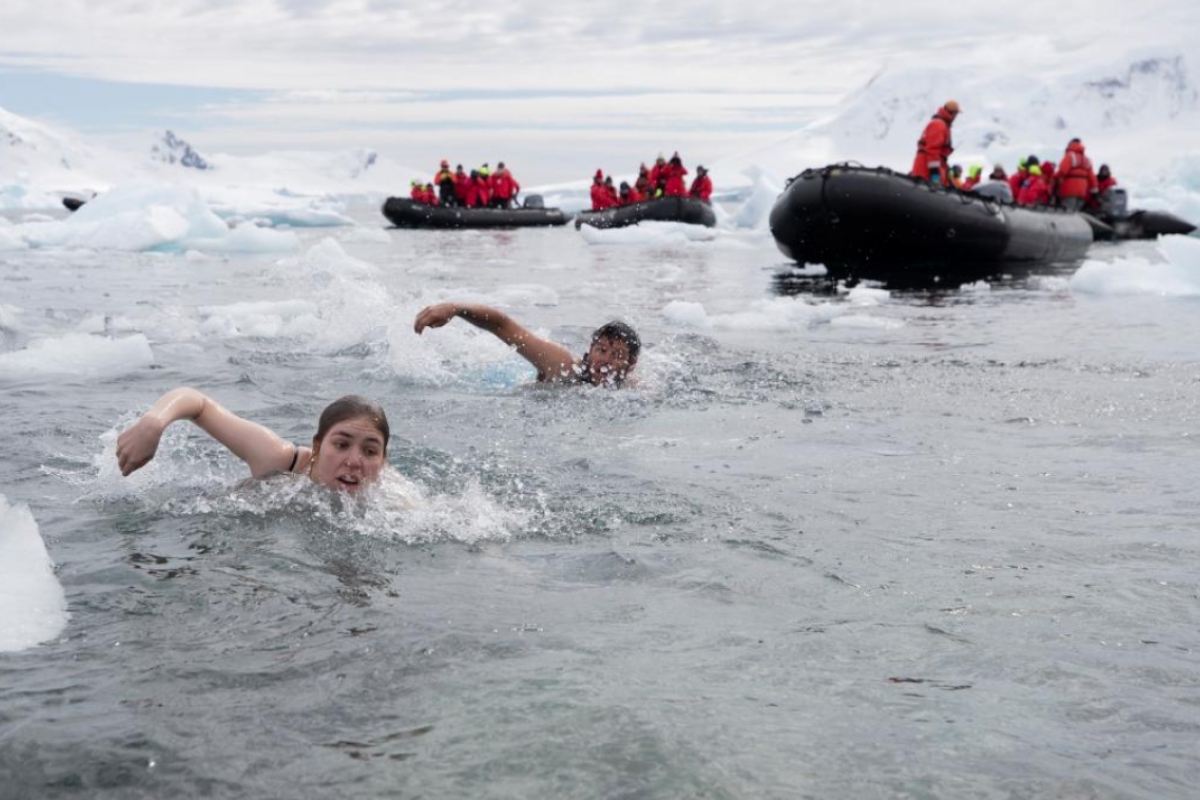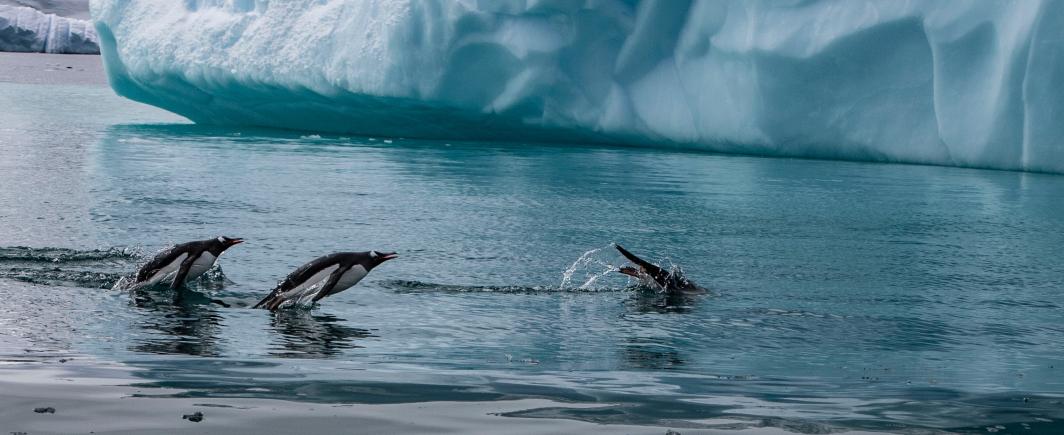Where can you experience 23 hours and 45 minutes of light in one day?
Where can you hear a constant chorus of the snap, crackle and pop of glaciers?
Where can you hike a glacier, count seabirds, do a polar plunge and also directly dig into topics of ecotourism and geopolitics?
If you guessed Antarctica, you are correct.
On Dec.10, 2018, seven students, two Arizona State University faculty and one ASU staff member embarked on an adventure only four U.S. universities ever have: They boarded a ship in Ushuaia, Argentina, and sailed to Antarctica for an intense, 10-day study abroad research expedition.
The ASU expedition spots a whale tail while on a Zodiac boat excursion. Photo courtesy of Jason Ransom
Coordinated by the ASU Study Abroad Office in collaboration with professors in the School for the Future of Innovation in Society, students studied wildlife patterns, the impact of climate change, land and space treaties around Antarctica, health care and more on the frozen continent.
Getting a group of students there was no easy task.
When asked why Antarctica, one of the ASU faculty co-leading the trip, Associate Professor Jameson Wetmore of the School for the Future of Innovation in Society, said, “Why not? ASU runs hundreds of programs all over the world, and it was the only continent we were missing. Aside from that, Antarctica is a great laboratory for learning. When you go to the extremes — the coldest, driest, most ice-covered place in the world, it magnifies things. You really get a sense for how difficult it must be to be an animal down there.”
With no two majors the same, the seven students developed research questions such as:
- How do you provide health care in a place where you don’t have normal access to a doctor and facilities?
- How has photography over time shaped our perception of Antarctica?
- How has climate change affected penguin colonies and whale migration patterns?
- How do you plan for enough food and water for 146 passengers and 91 crew aboard a ship for 10 days with no access to outside resources? And how do you manage to do that in a way that minimizes the environmental impact?
In preparation for the program, the diverse group of students took a fall 2018 Session C course and developed a research project for the ice. Based on their experience in Antarctica and guidance from ASU staff, Wetmore and Professor Diana Bowman of the School for the Future of Innovation in Society and the Sandra Day O’Connor College of Law, students were able to delve deeper into the mysteries of the frozen continent.
What they didn’t expect was to have experts in their fields of study right on the ship, available for them to have research-based discussions nearly any time of day.
“The richness of the experience", said Bowman, "was something that none of us could have predicted before stepping onboard the ship for the first time. Not only were our students able to engage with leading scientific experts in the field, but they were able to contribute to Antarctic research, and do so in a way that connects them personally to the work.”
Access to real-life research experts
“This program definitely had logistical challenges,” said study abroad program international coordinator Natalie Coveyduck. “Our initial ship was dry-docked in Canada, and together with our partner, AUIP, we raced to find an alternative vessel — that led to incredible access to researchers, experts and even meeting the former Prime Minister of Canada.”
ASU was the only university aboard the RCGS Resolute, and this led to invaluable one-on-one conversations with expert marine wardens, a marine naturalist, an ornithologist, a former photographer, a penguin expert, a glaciologist and even the aforementioned former prime minister of Canada.
Aside from the crew, there were two scientific research groups actively conducting research. Students were able to observe their work, ask questions and see direct results. One such group, Oceanities, was conducting research on penguins.
“As a casual visitor, you cannot shake hands with a penguin,” said Wetmore. “You have to maintain at least a five-meter distance from them at all times to respect the penguin's habitat and that we're visitors in their home.” The Oceanities group confirmed they saw 10,000 pairs of penguins.
Pushed to the edge of their comfort zone
“Most, if not all, study abroad programs push students outside of their comfort zone," said Bowman. "When you’re in such extreme conditions like Antarctica with 6- to 8-meter waves one day and contained to one space, that level of comfort is pushed to the maximum. Every day brought new challenges that we had to overcome as a group — whether it was getting in to a Zodiac boat with up to five layers of clothing on, figuring out how to hike a glacier without losing your boots in a one-foot-wide path in the snow made by ship staff or pushing past your mental limits to do the polar plunge.”
While aboard the ship, there were times the students and faculty would see 15- to 20-foot-high waves. When rough waters would hit, students and faculty on the program would check in on each other and this experience created a special bond between all participants. According to Bowman, “this bond was put to the test when we, as a team, decided to participate in the polar plunge. It was the encouragement, support and sense of friendship that motivated us all to dive into near-freezing water. But we did it together.”
A group of penguins next to a glacier. Photo courtesy of Jason Ransom
Day in the life in Antarctica
Only 100 people are allowed on the continent at any given time. With 120-plus passengers aboard the RCGS Resolute, groups were split into morning and afternoon mini-expeditions, primarily on Zodiac boats. Hiking a glacier, assisting with whale research, hearing on-site lectures from expert staff and bird-watching filled students’ days. Throughout the 10-day program, students observed more than 64 different types of birds and 14 types of mammals including sea lions, seals, whales, porpoises and dolphins.
Prior to departure, Arizona PBS provided Wetmore with a camera to document the experience in preparation for an episode on Catalyst, a show that profiles ASU scientists and explorers as they make inventions and discoveries around the world. This particular episode is focused on the student experience. It is due to be part of this season, airing likely in May or June.
Student impact
Health science major Jackson Merten can attest to the lasting effect of the study abroad experience.
"After re-integrating with society on return from the most remote continent on the planet, I've found several differences in my life, shaped from the impact this program has made," he said. "Most central is the personal impact, the level of accomplishment I feel in having participated in one of the most unique programs any person, let alone a student, could have hope to be a part of. With this course, not only have we been able to see and step onto Antarctica ourselves, but we were encouraged to contribute to the discussion through field research and academic papers based in our own majors, standing on the shoulders of giants to share our perspective and thoughts on how to address the complex problems and challenges facing Antarctica today."
This Global Intensive Experience program, Antarctica: The Frozen Continent will be running again in 2020. For questions about the program, please reach out to Diana Bowman or Jameson Wetmore.
To learn more about the 250-plus study abroad programs in more than 65 different countries offered at ASU, visit an upcoming event across ASU’s campuses this semester or see the Study Abroad Office website.
Top photo: ASU students hiking in the background amongst penguins in Antarctica. Photo courtesy of Jason Ransom
More Local, national and global affairs

Arizona public universities work together to predict housing insecurity before homelessness strikes
The words “housing insecurity” conjure up the image of a family living in a car after losing their home, frantically seeking an affordable new place to live.What if there was a way to predict housing…
A record 9 ASU students awarded US Department of State’s Critical Language Scholarship
Nine Arizona State University students have been selected for the highly competitive Critical Language Scholarship, or CLS, program — an initiative of the U.S. Department of State that aims to…

Putting hope above hate at antisemitism conference
Hatred and hope were the overarching themes of the “Rising Above Together” conference hosted April 11 by the Anti-Defamation League in partnership with Arizona State University.Hatred: According to…


